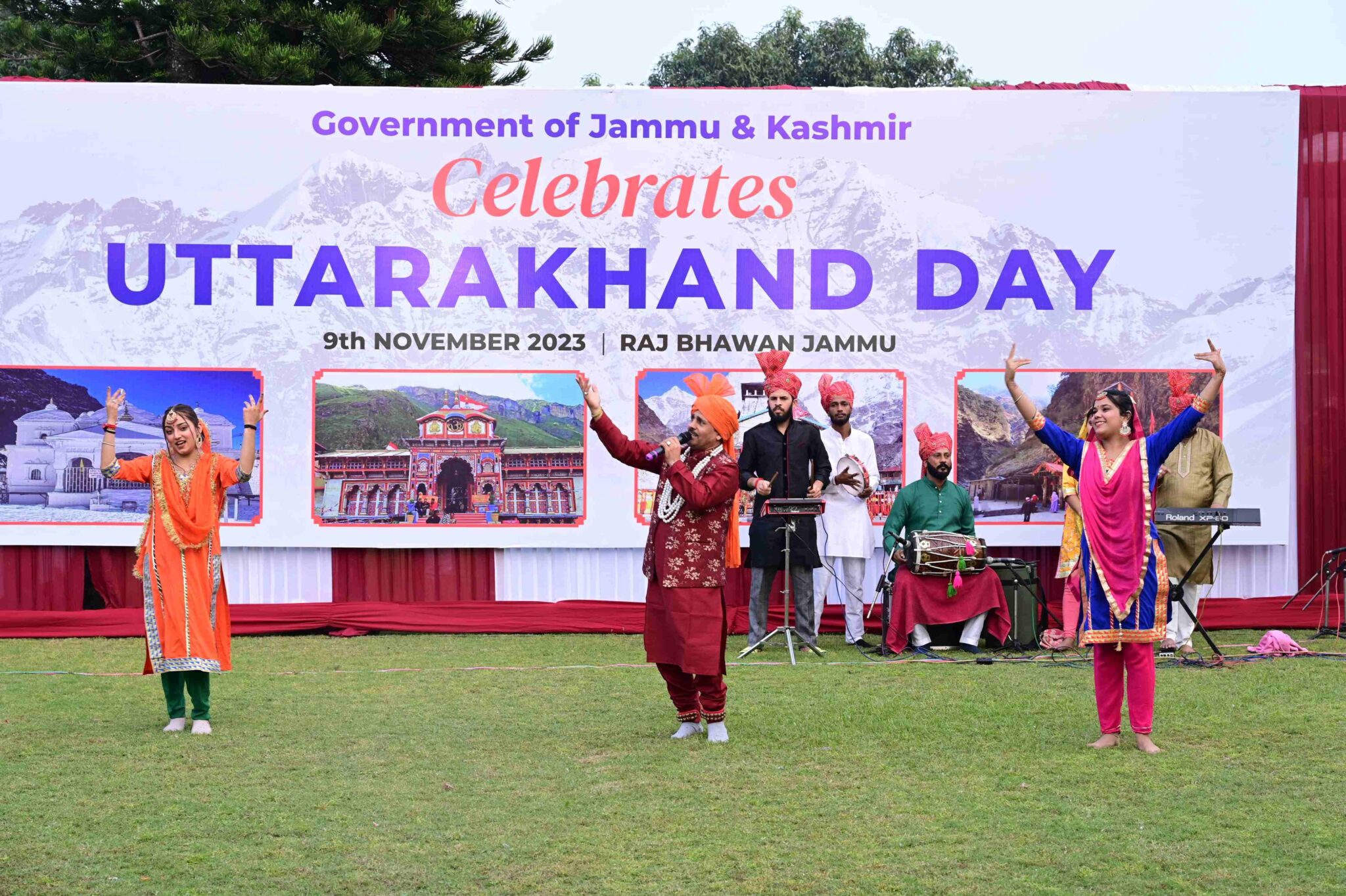


On November 9, Uttarakhand celebrates its Foundation Day as the 27th state of India, which is marked with the rich southern culture and the spiritual significance of Devbhoomi, also known as the Land of the Gods. As the state celebrates its creation, here are some significant aspects to know about Uttarakhand, including its history, climate, festivals and traditional greetings. Recently, there was also a groundbreaking decision to recognise bird watching as an industry in the state, aiming to boost tourism.
Uttarakhand Foundation Day: Celebrating the Spirit of Devbhoomi
On November 9th, Uttarakhand, nestled in the lap of the Himalayas, commemorates its Foundation Day, marking its journey as the 27th state of the Indian Union. This day is a celebration of the state's rich cultural heritage, spiritual significance, and natural beauty.
Background
Uttarakhand's history dates back to the ancient period. It was once part of the great Mauryan Empire and later witnessed the rule of the Guptas, Palas, and the Mughals. In the early 19th century, it became a part of the British Empire.
After India's independence in 1947, Uttarakhand remained a part of Uttar Pradesh. However, a long-standing movement for statehood gained momentum in the 1990s, culminating in the formation of Uttarakhand as a separate state on November 9, 2000.
Cultural Significance
Uttarakhand is known as "Devbhoomi," the Land of the Gods. It is home to numerous pilgrimage sites, including Gangotri, Yamunotri, Kedarnath, and Badrinath. The Char Dham Yatra, a spiritual journey to these four shrines, attracts millions of devotees annually.
Natural Beauty
Uttarakhand is blessed with stunning natural landscapes. The snow-capped Himalayas form its northern borders, while the fertile plains of the Ganga and Yamuna rivers flow through the state. It is also home to several national parks and wildlife sanctuaries, including the Jim Corbett National Park, famous for its tiger population.
Economic Progress
Since its formation, Uttarakhand has made significant progress in various sectors. It has a strong hydropower industry and is a destination for religious and adventure tourism. The government has recently recognized bird watching as an industry, aiming to boost tourism further.
Top 5 FAQs
1. What is the official language of Uttarakhand? Answer: Hindi.
2. Who is the current Chief Minister of Uttarakhand? Answer: Pushkar Singh Dhami.
3. What is the state animal of Uttarakhand? Answer: Musk deer.
4. Which religious festivals are celebrated in Uttarakhand? Answer: Kumbh Mela, Kanwar Yatra, Char Dham Yatra.
5. What are some traditional greetings in Uttarakhand? Answer: "Jai Bhairo," "Jai Badri Vishal," and "Jai Kedarnath."
Uttarakhand's Foundation Day is a time to celebrate the state's rich history, cultural diversity, and natural beauty. As the youngest state in India, it continues to progress while preserving its ancient traditions and spiritual legacy.

A shocking conspiracy was uncovered by the Bihar Police when they arrested an individual from Bhojpur for allegedly issuing death threats to MP Pappu Yadav. The whole scheme was concocted by his close associates to garner enhanced security for Yadav. The arrested man, Ram Babu, has confessed to making a threatening video at the behest of the MP's associates, who had promised him a position in their party. Police are still investigating the instigator of this plot and are also looking into other aspects of the case.

Congress-led UDF emerged as the leading force in the Kerala local body elections, securing a majority in 505 out of 941 Grama Panchayats. Meanwhile, the BJP-led NDA made significant gains, winning the Thiruvananthapuram Corporation for the first time and retaining key municipalities. Union Home Minister Amit Shah credited the victories to PM Narendra Modi's leadership and vision for "Vikasita Keralam".

In a significant victory for the Aam Aadmi Party (AAP), three women candidates secured seats in the Kerala local body elections. Former Mayor and MCD AAP Councillor Dr. Shelly Oberoi congratulated the winners, praising their success as a strong example of women's empowerment. Meanwhile, Congress president Mallikarjun Kharge expressed his gratitude to the people of Kerala for giving a decisive verdict in favor of the United Democratic Front (UDF), while Prime Minister Narendra Modi acknowledged and praised the efforts of BJP workers in the state. This outcome reflects the increasing support for female leaders and potentially hints at a greater shift towards progressive politics in the state.

As the counting for the local body elections in Kerala began, the Congress-led UDF is in the lead in most of the city and town local bodies. This two-phase election, held on December 9 and 11, has seen a high voter turnout of over 70%. The results of this election will have a significant impact on the political landscape ahead of the 2026 Assembly elections in Kerala, with local body results often reflecting voter mood. Congress president Mallikarjun Kharge has expressed confidence in the UDF alliance's chances in the upcoming Assembly polls.

R Sreelekha, the former DGP and BJP's mayoral candidate in Thiruvananthapuram Corporation, secured a victory in the Sasthamangalam ward and pledges to deliver a corruption-free administration if given the chance to serve the public. Other notable victories in the corporation elections include former district president VV Rajesh and UDF mayoral candidate KS Sabarinathan. However, some high-profile defeats were seen, including actor Poojapura Radhakrishnan and Congress leader Johnson Joseph. Independent candidate Pattoor Radhakrishnan and Congress candidate Mary Pushpam also emerged victoriously in their respective wards.

According to sources, the Special Intensive Revision (SIR) exercise in West Bengal has identified a total of 58,80,202 voters who may be excluded from the draft voter list. This includes people who have passed away, transferred, missing, and identified as 'fake' by the Election Commission. These numbers are subject to change in the final list, which is set to be published on February 14, 2022. The commission has divided voters into three categories - own mapping, progeny mapping, and non-mapping - depending on their presence in the 2002 voter list. Those not falling into any of these categories will be called for a hearing by the EC.

In a significant shift in voter sentiment, the Congress-led United Democratic Front (UDF) is set for a decisive win in the Kerala local body elections, dealing a major setback to the ruling CPM-led Left Democratic Front (LDF) ahead of the 2026 Assembly elections. The UDF has consolidated its gains across urban local bodies, while the LDF's last-minute welfare push failed to curb anti-incumbency. The NDA also made significant gains, underlining its expanding presence in urban Kerala.

In a major upset, the BJP-led NDA has won the Thiruvananthapuram Municipal Corporation, ending the CPI(M)-led LDF's 45-year reign. The victory, with the NDA winning 50 out of 101 seats, is a boost for BJP's aspirations in Kerala's upcoming Assembly elections. The party's strong focus on development and Hindutva in Thiruvananthapuram, under the leadership of state unit president Rajeev Chandrasekhar, proved successful despite challenges faced during the campaigning. This victory has put the BJP in a strong position for the 2021 Assembly elections.

The Bharatiya Janata Party-led National Democratic Alliance (NDA) has taken a huge lead in Thiruvananthapuram Municipal Corporation, giving a setback to the ruling Left Democratic Front (LDF). Initial trends show the NDA leading in 25 wards, while the LDF is ahead in 15 wards and the UDF in 10 wards. This is a major blow to the LDF ahead of the upcoming assembly elections in Kerala, with a record voter turnout of 73.69%. The State Election Commission has also commended the peaceful conduct of the elections.

In the ongoing Kerala local body elections, the NDA, led by the BJP, has made a significant jump by winning or leading on 29 out of 101 wards in the Thiruvananthapuram Municipal Corporation. This is a significant increase from their 2015 performance, where they won only 33 wards. Meanwhile, the LDF, which had a strong hold in the corporation, has faced a setback with only 15 wards in their favor. This shift in dynamics has sparked discussions about the LDF's performance under Chief Minister P Vijayan's leadership.